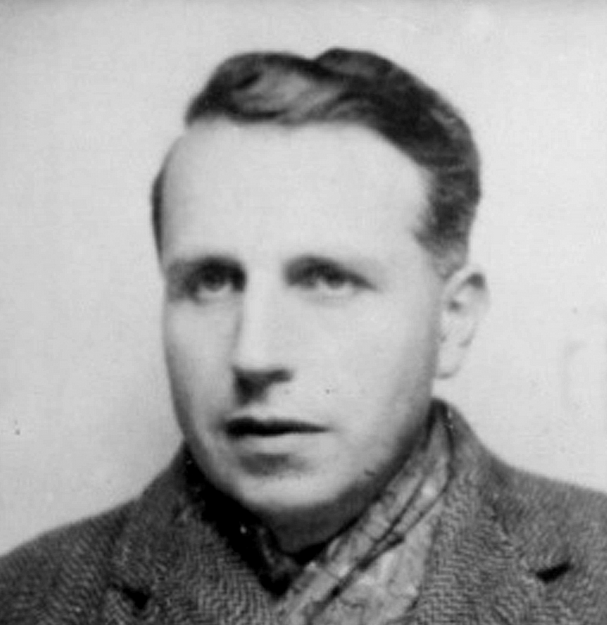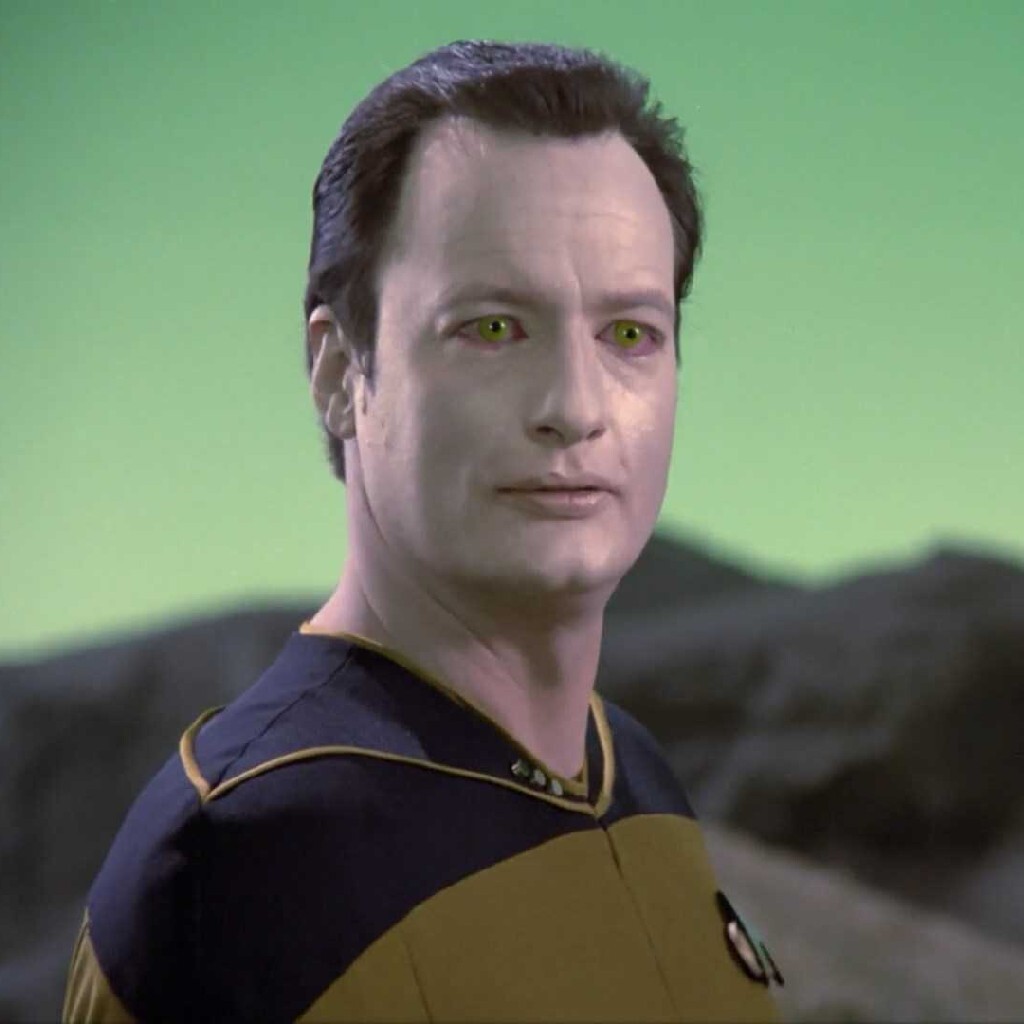For me it is the fact that our blood contains iron. I earlier used to believe the word stood for some ‘organic element’ since I couldn’t accept we had metal flowing through our supposed carbon-based bodies, till I realized that is where the taste and smell of blood comes from.
The combustion engine. I know technically it’s not but ultimately we as humans found a way to harness the power of explosions and make them do our bidding. honestly, one of humanity’s finer achievements. yes, it’s not without its barbs like emissions, but that’s a small price to pay for the workload any vehicle can provide.
As a fully qualified mechanic who’s built engines and understands every part and how they work… it’s still magic to me
I love going to the county faire each year to see the single stroke motors of yester year. they got an entire section dedicated to classic and steam engines and my wife gets mad at me when i just sit there listening to the belts and solo pops.
Queuing theory can have some fun surprises.
Suppose a small bank has only one teller. Customers take an average of 10 minutes to serve and they arrive at the rate of 5.8 per hour. With only one teller, customers will have to wait nearly five hours on average before they are served. If you add a second teller the average wait becomes 3 minutes.
Can you elaborate on the math here? (I believe you, I just want to understand the simulation parameters better).
Not OP, but this website should explain everything.
Thanks! This article really clears up a lot of the details that help the simulation make sense.
deleted by creator
They’re arriving slower than they can be processed. So the line shrinks slowly it there’s a line.
deleted by creator
Aren’t they arriving slightly slower than can be served, according to these numbers:
If one customer takes 10 minutes to serve, you can serve 6 customers in an hour
and you get 5.8 customers every hour, which is less than 6
So you serve 6 customers, meaning you have a leftover capacity of 0.2 per hour or 1 extra customer every 5 hours
Maybe the numbers are switched over or I am misunderstanding something
Edit: nevermind, read the link in the thread and realised I treated the average as the actual serving time and I’m guessing that’s what makes it non intuitive. I’m still not entirely clear on how it works.
deleted by creator
Also, in this simulation are the customers arriving in equally spaced intervals or is random arrival time within the bounds assumed?
In the linked article they are arriving randomly. It takes 10 minutes per customer and they arrive every 10.3 minutes.
Assume the bank opens up to a long line and it makes sense.
Humans can smell rain better than a shark can smell blood.
Everything is illegal in the DPRK except if you are the current Supreme Leader, in which case everything is legal.
This is obviously bullshit. You’re right to not believe it.
The train you have to pull on foot because the DPRK hasn’t discovered combustion just got ten cars longer.
The speed of advancement from the industrial revolution to present.
The relatively short time humanity has been around
The universe is finite but expanding
The Monty Hall problem
The absolute scale of devastation created by humanity
The funny thing is that sounds exactly like what he would say.
The speed of advancement from the industrial revolution to present.
This one makes Fermi’s Paradox far more confusing and terrifying to me. The time it took to go from agriculture to the steam engine is nothing compared to the age of the universe, absolutely nothing, and from the steam engine to modern technology is fuck ton nothing.
An intelligent species could go from stone age technology to nuclear weapons in the blink of an eye.
And that’s just life as we understand it. We have no idea if we’re the equivalent of Flatland in a higher spatial dimension or something. There could be stars with entire civilizations of plasma-based intelligent life churning inside of them. There could be intelligent civilizations lurking in each and every single subatomic particle.
It’s possible no matter how far out or far in we look, we just keep finding more universe, more space for something to inhabit, forever…
As they said on
 , if we look everywhere and we’re the only intelligent species anywhere in this universe … well that would be weirder than if life is hiding all over the universe.
, if we look everywhere and we’re the only intelligent species anywhere in this universe … well that would be weirder than if life is hiding all over the universe.We humans are roughly as big compared to atoms and subatomic particles as we are small compared to the largest structures of the observable universe
The speed of advancement from the industrial revolution to present.
The telescoping nature of progress
I may be wrong but I thought it was generally believed that the Universe is infinite (or at least that that was the most common belief among those that are qualified in the field)
Edit: I mean infinite in Space, of course it hasn’t existed forever
Edit2: I quickly read this article https://www.swinburne.edu.au/news/2021/08/Is-space-infinite-we-asked-5-experts/ where the 3 astronomers answered maybe, yes, and yes. Whereas the two non-astronomers answered no. Since this seems to agree with me I will believe that this is correct and not investigate further
That stuff about metal is really counterintuitive, because normally when we talk about iron, gold, copper, nickel, zinc, magnesium, aluminium etc it’s usually about the element in its metallic form. However, when you study chemistry a bit more, you’ll come to realize metals can be dissolved in water and they can be a part of a completely different compound too.
Calcium, sodium and potassium are basically the exact opposite in this regard. Normally when people talk about these metals, they are referring to various compounds that obviously aren’t metallic at all. This leads to people thinking of these elements as non-metallic, but it is possible to purify them to such an extent that you are left with nothing but the metal.
In the case of Ca, Na and K, the resulting metal is highly reactive in our aggressive atmosphere, so that’s why we rarely see these elements in a metallic form. Our atmosphere contains water and oxygen, which makes it an incredibly hostile environment for metals like this. Imagine, we’re breathing this stuff that attacks so many elements mercilessly.
Our atmosphere contains water and oxygen, which is an incredibly hostile environment for metals like this. Imagine, we’re breathing this stuff that attacks so many elements mercilessly.
Hydrogen and oxygen and very reactive, which is exactly why they are so necessary for survival. Our bodies function off of chemical reactions, it makes sense to power that off of the most reactive elements it can easily find.
Time relativity always boggles my brain, I accept the fact but I find crazy that if I strap my twin and his atomic clock to a rocket and send them out to the stratosphere at the speed of light, when they return he’ll be younger than me and his clock will be running behind mine. Crazy
I wish we could test this out with only simple apparatus. Unfortunately the common people do not have access to satellites or nonstop bullet trains.
We can and do. GPS satellites need to be regularly calibrated to Earth clock signals or they’ll start to drift their calibration by meters per day.
deleted by creator
Please dont do that
From what I understand, you are always travelling at the speed of light through space/time, but when you move at high speeds through space that shifts the proportion of your speed out of the time dimension. And a photon travels only through space, experiencing no time between the time it was emitted and the time it was absorbed. What I just can’t wrap my head around is the concept of travelling at some speed without involving the time dimension at all.
Here’s something I just ran into looking stuff up for my comment: GN-z11 is one of the farthest galaxies we’ve ever seen. Thanks to the expansion of the universe, at a distance of over 30 billion light-years, it has to be moving away from us at over twice the speed of light.
What the fuck does that mean, temporally? Like, forget the speed of light, time dilation has to do with space and relative speeds. If I’m moving at near the speed of light relative to you, then my clock will physically tick more slowly. What happens if I’m moving over twice the speed of light? Is the real life GN-z11 in our reference frame moving backwards in time at over twice the rate we’re moving forward?
From my understanding, this is caused by the universe itself expanding between the 2 objects, not that the object itself is moving that speed relative to us. It’s still completely insane to think about, either way.
I can’t find any reference that says it’s moving away from us at twice the speed of light, which would violate Relativity. The fact that it is further away from us in light years than the age of the universe in years, is due to the fact that the space itself is expanding.
The thing is, it’s moving that fast because of the expansion of space. ≈30 billion light-years over ≈14 billion years equates to over twice the speed of light. Does that mean there’s no crazy relativistic time dilation, and time is moving normally for them in our frame of reference, since they aren’t physically moving, it’s space that’s expanding? That’s just as wild to my brain
Relativity only applies to local reference frames and not to the recession rates of cosmologically distant objects.
The part that I understand in the intellectual sense, because I know or at least used to know how it follows from the math, but which just doesn’t feel like it should be the case, is the whole “relativity of simultaneity” aspect of it. That there isn’t an objectively true order in which events happen in, if the events in question aren’t linked by cause and effect. That is to say, it is possible for one person to see an event A happen before another event B, a second person to see the two happen at exactly the same time, and a third to see event B happen first and then event A, and for all three of them to be equally right. It just feels like, on some level, there ought to be one objectively true order to time, a single valid timeline that all events can be placed in relative to eachother, and for time not to work that way feels so absurd as to not even be able to articulate why the idea feels wrong.
deleted by creator
I see another veritassium fan here maybe?
deleted by creator
Also the idea that light is both a particle and a wave always messed with my head because I wanted to know why does it decide to change and when? And the answer is that light is always a particle and always a wave at the exact same time.
It is a wave particle.
And it is possible from light alone to build both an electron and a positron as demonstrated in a 1999 laser science experiment in New York.
I usually interpret this as behaviour: photons are not “particles” or “waves”, photons are photons. They just behave as waves and as particles, depending on how you’re looking at them.
Note that even things with a resting mass (like you or me) are like this, too. It’s just that, as the mass increases, the wave behaviour becomes negligible.
deleted by creator
This doesn’t make it any less crazy
The crazy thing is there are actually two double slit experiments, and that light can tell whether or not you are actively observing it or not, and decides whether or not to actually exist as a wave or particle.
I heard from someone I respect irl that these experiments were debatable, but I can’t personally hold an argument about it.
It’s even crazier because you don’t need to reach the speed of light. It’ll happen in a smaller degree for any speed. Even in mundane conditions.
For example, if your twin spent four days in a 300km/h bullet train, for you it would be four days plus a second.
Usually this difference is negligible, but for satellites (that run at rather high speeds, for a lot of time, and require precision), if you don’t take time dilation into account they misbehave.
(For anyone wanting to mess with the maths, the formula is Δt’ = Δt / √[1 - v²/c²]. Δt = variation of time for the observer (you), Δt’ = variation of time for the moving entity (your twin), v = the moving entity’s speed, c = speed of light. Just make sure that “v” and “c” use the same units.)
IIRC the orbit of Mercure doesn’t work with Newton Model, and astronomers were predicted the discovery of Vulcain a small planet between Mercure and the Sun. So a new model had to be invented since Vulcain couldn’t be found.
We would have definitely figured it out once we built GPS, since you need to account for relativistic effects there.
Without Einstein, I think that the discovery of time dilation would be delayed by only a few years. There were a lot of people working in theoretical physics already back then; someone else would inevitably dig through Lorentz’ and Poincaré’s papers, connect the dots, and say “waitaminute time might be relative”. From that, time dilation is a consequence.
In special I wouldn’t doubt that Max Planck would discover it.
I’m saying that because, in both science and engineering, often you see almost concurrent discoveries or developments of the same thing, because the “spirit of a time” makes people look at that aspect of reality or that challenge and work with it. The discovery of helium and the development of aeroplanes are examples of that.
Yes I knew about that and I’m glad that doesn’t make it crazier for me, instead it makes it easier to accept. If it were something that happened only after hitting some arbitrary speed value I’d be a lot more mentally damaged
Probably one of the most memorable and pivotal moments in my life was when my college professor showed us the origins of relativity and how Einstein came to the conclusion that E = mc^2
It’s a proof that only took about 10 minutes to explain, and the mathematics really aren’t that difficult to understand by most people. The geniuses in the fact that Einstein started by explaining how calculating relative motion meant that time had to be a variable that could be different depending on who the observer was. This in itself is an incredible observation, but you can take this to the extent to literally prove that mass and energy are directly related to each other. It’s absolutely wild and one of the most sublime equations ever made.
What would happen if you were to put both of yours legs in these westernmost and the easternmost parts?
You’d probably drown.
Your legs would glitch around the whole circumference of the Earth.
How is Alaska easternmost?
Its Western most point crosses the international date line and is therefore technically “really far east” instead of “really far west”.
Wait until you find out that some places breach that line (in addition to it being wobbly to begin with) which is we have timezones greater than +12 or -12. I hate timezones. With a passion. Signed: a programmer.
The world would be better if we just used UTC everywhere.
or Decimal Internet Time, which is way easier to do calculations with, easier to distinguish from local times, and is less eurocentric
Albeit arbitrary… if it’s globally recognized that each new day begins as the sun crests the international date line, and the sun indisputably rises from the East, why would it not make sense?
Because time and direction are different metrics? West is a metric that only means anything in relation to something else in a straight line. It’s a direction. West doesn’t stop being west if you go too far. It’s always west.
I need to go to bed, I misread that as “Ahsoka is simultaneously the northernmost, westernmost, *and” easternmost US state."
Likewise, the closest US state to Africa is Maine.
As a person who was born liking music, I indeed find it too bizarre to believe to be true.
I thought my significant other was one of these to a certain extent. It does weird things to me as a DJ. Turns out that she just likes the limited music that she likes and cannot stand most everything else.
Chipmunks and Avett Brothers, a playlist only rose colored glasses can help with.
How disappointing… Music can make you feel any which way you want, it’s like the perfect drug. once you find that one banger, you can’t stop. I spend a huge amount of my time on Music Discovery. It’s the same thrill you’d get from say, eating those jelly beans in harry potter; a lot of them are bad tasting but oooh boy when you find that magical flavor that hits you right in the feels? magnifico!
I know people that don’t have necessarily poor taste in music, but certainly underdeveloped. there is a reason most talented musicians will at one point make a ‘parody’ piece that will skyrocket to the charts. a lot of classical music pieces were made to be cheeky and ‘dumb’ but, people liked those songs so much it was a case of ‘the customer is always right’.
I used to be like this, but with movies. When I first met my wife, she was utterly baffled at the concept of somebody not enjoying movies, and she made it her mission to make me enjoy them.
Come to think of it, she actually doesn’t like music much. I’ve failed to change her opinion on that though because my taste in music is shit (and I’m proud of it.)
I am still like this with movies and TV.
It just doesn’t appeal to me. I’ve seen a handful of movies/shows that I’d call “not boring as shit” ever, and even then, its not something I’d choose to do myself, but is fine if I’m, like, chillin and chatting with people or whatever.
Might be my neurodivergence, might also just be how much of a reader I am. Movies are just so slow compared to reading.
I’m the opposite. I can’t ever ‘zone out’ while listening/watching/reading/playing stuff; I can’t even listen to music while playing games, and usually turn background music on low or off.
That’s basically how I was. Honestly, the reason I enjoy movies nowadays isn’t really because it’s my thing, but because my wife is always so excited to show me the movies she likes, and I can’t help but enjoy myself when it’s making her happy.
I rarely watch movies on my own, or with other people besides her, but when I do, it’s usually because I think it’d be fun to tell her all about it, and maybe watch it with her too.
I’m also bigger on reading, but I have really severe, unmedicated ADHD, so I can’t sit down with an actual book for longer than a few minutes. Gotta have pretty pictures, like a manga or graphic novel or something (and even then it’s hard.)
For me it’s not like I don’t like music, but there are large stretches of time, where I do not care so much for it. I would guess that I haven’t actively choosen to hear music for weaks, possibly months, now. Obviously excluding the music you can’t avoid, like background music in movies and video games etc.
I love music so much that i can admit that Silence speaks Volumes…i find the worst culprit to be advertisements. they play ‘classic hits’ when they really mean the top5 songs without consideration for any other of the artists 2nd or third tier bangers.
Honestly so much music is lost to the aether because soliciting has used it so much that a lot of people generally attach that relationship to music
deleted by creator
I have since changed my tune.
Ba-dum tsh
deleted by creator
Can you tolerate it at least, or you get annoyed if it’s playing at an event/Uber/supermarket etc?
deleted by creator
Wait, what? Are you saying you actively don’t like music? I mean i can (kind of) understand if a person doesn’t really get a pleasure response from listening to music, but you’re saying listening to music actually gives you a displeasure response?? ALL music? It’s ok if that’s the case, you didn’t choose to have that response, but i just want to be clear that this is what you’re saying?
deleted by creator
Man that sucks. But it seems like you’re doing better these days, so that’s good.
deleted by creator
A lot of music generates unpleasant sensations for me too, though I can tolerate it a bit. Unlike the other commenter though, I can enjoy a lot of other music. What’s unusual in my opinion is that it’s all music, not the negative response. Lucky you if the worst that music can get from you is indifference!
I see. I totally get what you mean, it’s taken me years to learn how to tolerate a lot of music I don’t like. Thanks for sharing
The official 9/11 story.
In the same vein, when I was a kid, all the death camp nightmare stuff about DPRK and the Uyghur genocide stories when it first came out
Uyghur genocide stories
not facts
It’s a commonly known “fact” that I don’t believe because it’s so bizarre like the parent comment about not believing the official 911 story
To be fair, the single iron atoms are surrounded by a lot of carbony goodness. There’s a few metals that have minor biological uses in humans like that, and even sodium and potassium are metals in pure form.
It’s hella weird to me how we suddenly developed democracy and industrialisation after thousands of years of kind of the same thing. I have yet to hear a convincing explanation; right now I’m playing with Lanchester’s laws as a theory.
How would Lanchester’s law apply? I admittedly never heard of it before, but I don’t see equivalents for army size and damage ratio here…
Anyway, the answer to your question is probably just population growth. We needed a critical mass of “useless” people not preoccupied with subsistence for science-y stuff to gain enough traction and spread.
There were democracies before industrialisation by the way, e.g. in ancient Greece.
There were democracies before industrialisation by the way, e.g. in ancient Greece.
Yeah, they called it that, but most of the population was literal slaves and like 1% of the population was actually rich and male enough to participate in the political process in any way. Same story with the Republic of Venice and all the other pre-modern republics, it was basically monarchy by council. Power actually derived from the masses is new within the last couple centuries or so. I don’t think people realise this enough.
The British Empire started the same way, but suffrage fairly continuously expanded over the decades, whereas Athens had a tendency to slip back into a dictatorship for spells.
Anyway, the answer to your question is probably just population growth. We needed a critical mass of “useless” people not preoccupied with subsistence for science-y stuff to gain enough traction and spread.
That’s probably part of it - science started creeping along with the invention of agriculture, although it was too slow for contemporary people to notice - but don’t forget Europe wasn’t the most happening place to start with and had just dealt with the black death. If it was population the Enlightenment should have long since happened in China or India. Actually, I think Roman Europe might have been more populous than early modern Europe, but I’m not sure.
Same story for wealth, and most cultural explanations.
How would Lanchester’s law apply?
It’s not obviously connected, but it shifted at about the right moment in history and military matters flipping on their head could have had enough of a political impact to completely change everything like that. My working theory is something like, non-linear attrition for smaller groups favours the side that has more mass support. Before projectile weapons were dominant the French Revolution might have been crushed like every other peasant rebellion, basically.
When the US was founded it excluded about 94% of the people from within its borders from participating. Slavery existed on a mass scale throughout the world’s early, liberal (so-called) democracies, or often their economy was subsidized by slave labor abroad in their colonies. So if slavery didn’t exist within their immediate borders, it existed for the people their political & economic system subjugated. The idea that industrialization or “democracy” (not even sure how you are defining it, really) came into existence suddenly isn’t accurate, although there are revolutionary periods where social change came suddenly or breakthroughs in technology that occurred that reshaped social production. Those didn’t ever occur in a vacuum, and those discoveries were only able to affect the social system in so far as the social system was developed in such a way that they could be utilized… Often those big revolutionary changes in the social system were due to contradictions (compounding antagonistic relationships) within the social system itself becoming untenable. Trying to shoe-horn a somewhat obscure military “law” isn’t really going to explain how those changes occurred in a realistic way, because human society is much more complicated than that. You seem to want to reinvent the wheel here, you should try reading Marx, you might find it quite satisfying.
On your last point, the French Revolution was crushed ultimately, although the new social order retained changes that were beneficial to its new ruling class. But weapons themselves aren’t necessarily going to singularly shape the way in which social conflict resolves. Military technology is important to these developments, but ultimately a part of the larger social system that is always changing to either maintain itself or undergoing revolutionary change.
When the US was founded it excluded about 94% of the people from within its borders from participating. Slavery existed on a mass scale throughout the world’s early, liberal (so-called) democracies, or often their economy was subsidized by slave labor abroad in their colonies.
Yup. And by today’s definition, I don’t think that’s a democracy.
The idea that industrialization or “democracy” (not even sure how you are defining it, really) came into existence suddenly isn’t accurate
I’d define it as one end of a continuum of incentives for leadership. In a modern democracy, pissing off the voting public is a guaranteed lose condition. In North Korea all that matters is keeping the the people just below you loyal and the people just above you happy (yes, I see your domain, no, I don’t want to hear your conspiracy theories right now, I’m having another conversation). Kim Jong Un doesn’t need to care if his people are starving as long as his generals keep their soldiers in check for him, who will in turn keep the civilians in check. Maybe he does, I think some dictators do, but he doesn’t have to.
Agreed, it didn’t happen suddenly at all. It took centuries of both reform and revolution and counter-revolution. But, it did happen unexpectedly after a lot of the same, and I fear it going away again if I don’t know why it’s here.
Also, I’m not sure if industrialisation is connected to the growth of ideologies, although I suspect it based on timing and certain shared ideas.
But weapons themselves aren’t necessarily going to singularly shape the way in which social conflict resolves. Military technology is important to these developments, but ultimately a part of the larger social system that is always changing to either maintain itself or undergoing revolutionary change.
Agreed. That’s the only variable I can find from the last 2 centuries that didn’t exist anywhere in the preceding 50 centuries or so, though, at least to date. My next best guess is that the awareness of progress itself fueled it.
My understanding is that it required four parts. Metallurgy, precision engineering, scientific method, the history of us trying all the wrong ways before.
Like, the Roman’s had the steam engine they just couldn’t make reliable high quality parts. Further they didn’t know a rational economy was something they should have or could have wanted.
Like, the Roman’s had the steam engine they just couldn’t make reliable high quality parts.
Well, the classical steam engine also wasn’t very powerful. It spun… but that’s it. They would have needed to add a proper turbine and closed ducts around it if they wanted to get a useful power output the same way. To be fair, I’m sure they could have figured it out or moved to a piston design, but as you point out they didn’t know economics and technological advancement were a thing. As far as they knew things were the same as they ever were and science was a hobby for the idle rich.
It’s a lot easier to talk about the industrial component than the (arguably more important) ideological one because it is so concrete. The Roman empire showed signs of early economic automation, like mechanical harvesting machines, which all vanished as it collapsed. The Chinese were using blast furnaces already in the same period, and you can see mass production of things like pottery vary far back in the archeological record indeed. For some reason, it didn’t take.
I personally suspect feudal lords just stifle innovation. Industrialisation showed up at the same time as the ideological enlightenment, and we see similar patterns in modern developing countries. But, I could be wrong. Are you drawing your four-part theory from a book I could read?
No, that is just a listing of all the diffrent explanations I have heard. I suspect they all play a role to a greater or lesser degree. My personal idea is that slavery was the thing. It would never be profitable to spend the money to invent a labor saving device when there was effectively infinite cheap labor. They didn’t have the metallurgy to create high quality machine parts and the industrial design and manufacture ideas were invented for a long time yet. Their mechanical engineering was better than ours till like the 1900s. So it was all bespoke work. All expensive and kidna delicate. So you wouldn’t want to pay the expense of a labor saving device when you could just buy a few gauls for the money.
In the way of capitlaism stifling blue sky innovation feudal lords had to be even worse.
In the way of capitlaism stifling blue sky innovation feudal lords had to be even worse.
Exactly. Under feudalism, there’s no “disrupting” established lords regardless of the pitch or your personal connections; even if one wanted to be your patron the others would probably gang up on them. This is basically why Russia is still using 99.9% old Soviet technology. They haven’t given themselves titles yet but oligarchs are basically feudal lords, Kamil Galeev has gone into more detail about that specific case.
To be fair, most the soviet stuff was well made in ways lots of modern stuff just isn’t. Like up untill the very recent period we didn’t have any space flight capacity but the old soviet stuff was still going strong.
It’s true. They set out to be hyper-progressive science people, and in some ways succeeded. Their engineers were always decent, and when a factory could source the stuff they needed good stuff was built.
Similar metal in the human body one, Vitamin B12 has cobalt in it. Absolutely wild. I guess that’s not really commonly known but it’s still worth mentioning
deleted by creator
deleted by creator
Strike the mithril veins! I guess?
Cobalt is toxic
Cobalt is very toxic. Far worse than lead. But yet bound up in this one molecule, that looks like this:

it becomes biologically necessary for all animals. How does it get there? Is all the vitamin B12 made already and it stays in circulation, or is there some plant that selectively fetches cobalt from the ground and builds this thing that keeps us all alive?
May I ask what is special about cobalt in B12 specifically? I’ve come to realize there are numerous inorganic substances inside my body like copper, gold etc. so cobalt by itself doesn’t really stand out anymore.
Cobalt by itself is toxic and damages the nervous system.
Interesting
I think your idea of what is organic or inorganic is a little off. Organic things can and do involve metals and gases in various forms. According to wikipedia, “About 99% of the mass of the human body is made up of six elements: oxygen, carbon, hydrogen, nitrogen, calcium, and phosphorus.” These are elements that also appear in minerals and other rocks, but that doesn’t mean the same elements can’t be in organic compounds. Everything is made of all the same stuff on the periodic table, organic or inorganic.
huh, thank you for leading me to find out about organocobalt compounds, and complicate my understanding of organic/inorganic chemistry. I still that fits the simple definition of “organic” = “contains carbon” that most chemists would use, though.
If you get 23 people in a room the odds of two of them sharing a birthday are 50%
The birthday paradox is a veridical paradox: it seems wrong at first glance but is, in fact, true. While it may seem surprising that only 23 individuals are required to reach a 50% probability of a shared birthday, this result is made more intuitive by considering that the birthday comparisons will be made between every possible pair of individuals. With 23 individuals, there are (23 × 22)/2 = 253 pairs to consider, far more than half the number of days in a year.
The concept of a room is malleable. Go to a 22 person tf2 server and ask birthdays.
Swab is a person, are they not?

Blows my mind how this by its bare bones is just simple statistics and combinations but is a totally different story when described in English. I’m sure there are similar facts like this that are mathematically logical but to a layman is confusing and inconceivable.
I’m sure there are similar facts like this that are
mathematically logicalmaterially sound but to anlaymanamerican it’s confusing and inconceivablecommunism
So not really then. I’ve always heard this but not seen it explained. But what you’re saying is that with every interaction the likely hood of finding a match goes up. But realistically, probabilities like that are just fun quirks of math, not representations of reality. Probabilities are doing the math on events, but these are events discussing concrete and unchanging dates. Every person paired up isn’t given a random date in every interaction. They have a set date from the outset, you just don’t know it. There’s not a random number generator picking a number from a set every time. Unless you’re in a simulation and none of this is real and birthdays don’t exist and the computer you’re plugged into has to make up a random birthday every time you interact.
That’s completely wrong lol. Nowhere is there an assumption that birthdays are randomized each time, you just don’t understand the math.
Sorry, but I honestly have no idea what you’re trying to say. If you have questions you can click on the Wikipedia link!
Ah. Sorry, I assumed you knew what you were talking about about and not just copy/pasting a thing you found. My bad.
It helps if you can compose a coherent sentence! :)
Your inability to understand is not my problem. I suggest a reading comprehension class. I understand that some of those big words like “Probabilities” and “math” might be too much for you. It’s okay. We all have things we’re good at. You’ll find yours one day.
it’s not part of the paradox, but there are also days when people tend to have more sex
like new years, valentines, christmas etc. (in the west at least)
so you tend to get more people born 9 months after those daysI listen to This American Life also.
i don’t know what that is
! I just assumed, lol
They have an episode where they talk about the birthday paradox and then follow it up with talking about how the math isn’t 100% correct as applied to humans bc birthdays aren’t normally distributed.
ah, fair enough lol
In high school my graduating class was 38. The one before us was 21, the one after 18.
Coincidently there was a massive blizzard that snowed everybody into their house for a week about 9 months before my birthday.
This seems like a logistical nightmare for all systems related to pregnancy and childcare if it were to actually become a popular thing, like damn, just pay people for having kids its not that hard
Yeah that’s why so many people have birthdays in September
There’s a giant ball of extremely hot plasma in the sky and we aren’t supposed to look at it. What is it hiding? Surely if someone managed to look at it long enough, they would see the truth!
“You look unhealthy! You should go stand in that really large room and absorb the radiation from that gigantic space-based fusion reactor more!”
You’re right, that sounds like a great idea.
Scientists look at it. That’s where they get all their sciencing from. The forbidden knowledges comes from the sun.
I’ve seen some of its secrets during the eclipse. It’s an angry, writhing tentacled thing. Be thankful it’s so far away.
I often used to look at it as a child, however the adults wouldn’t let me. I knew there was some ulterior motive behind it.
The hell that giving birth can be.
A lot of women endure having a baby…and holy. shit. No.
Every time that comes up, I think to myself “Something I’ve gone through must be more painful, right? I’ve gone through some pretty hellish things, and you’re trying to tell me something MORE painful exists? Not just a little more, but dramatically more? For my own sanity, I’m gonna have to live in denial of that.”
Serious spinal issues are probably one of the only things that could be worse.
Passing kidney stones is agonizing, and giving birth is a prolonged kidney stone experience.
Huh. I’m guessing the pain of kidney stones comes in varying levels, because the one time I had them I wouldn’t have called it the most painful thing in the world.
Then again, I could also have inherited my mom’s pain tolerance, who gave birth multiple times without any kind of pain relief and without flinching.
I’ve read that passing a kidney stone through the urethra has a brief level of pain matching childbirth… but it’s usually much briefer than childbirth.
Interesting. I suppose they’re both objects with pointy bits much larger than the holes they’re trying to pass through. On that note, I’ve been through very severe anal stenosis and THAT I would say was closing in on the most horrific pain I’ve ever been through. Before I could go to the doctor about it my wife basically had to spend all day and sometimes night keeping me occupied so I had something to do other than cry.
Their bodies produce chemicals that cause them to forget how bad childbirth was.
Exactly. I was there and saw my wife having the worst pain of her life. Really without exaggeration. It was incredibly hard and painful.
Then, 10 minutes after it’s all over, she looks at me and says “Well, that wasn’t so bad”.
I always thought it interesting that every time we talk about when our kids were born, I remember all these details and my wife’s like huh, weird, can’t remember a thing.
I suppose it is for the best, but nonetheless I find it uncomfortable how our bodies have the ability to manipulate our brains’ memories and our consciousness residing in the same place cannot do anything about it
These chemicals are our memories. They aren’t manipulating it. It’s just how it works.
On another note: the body produces opioids when you’re in great pain











































